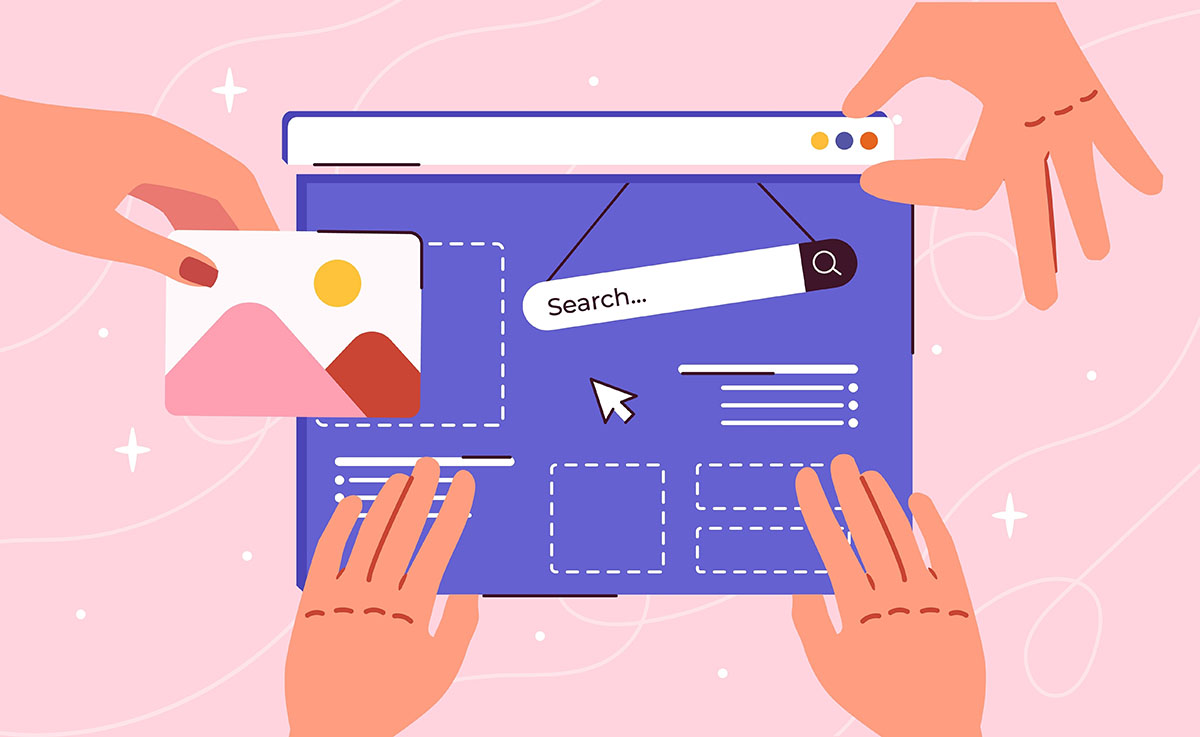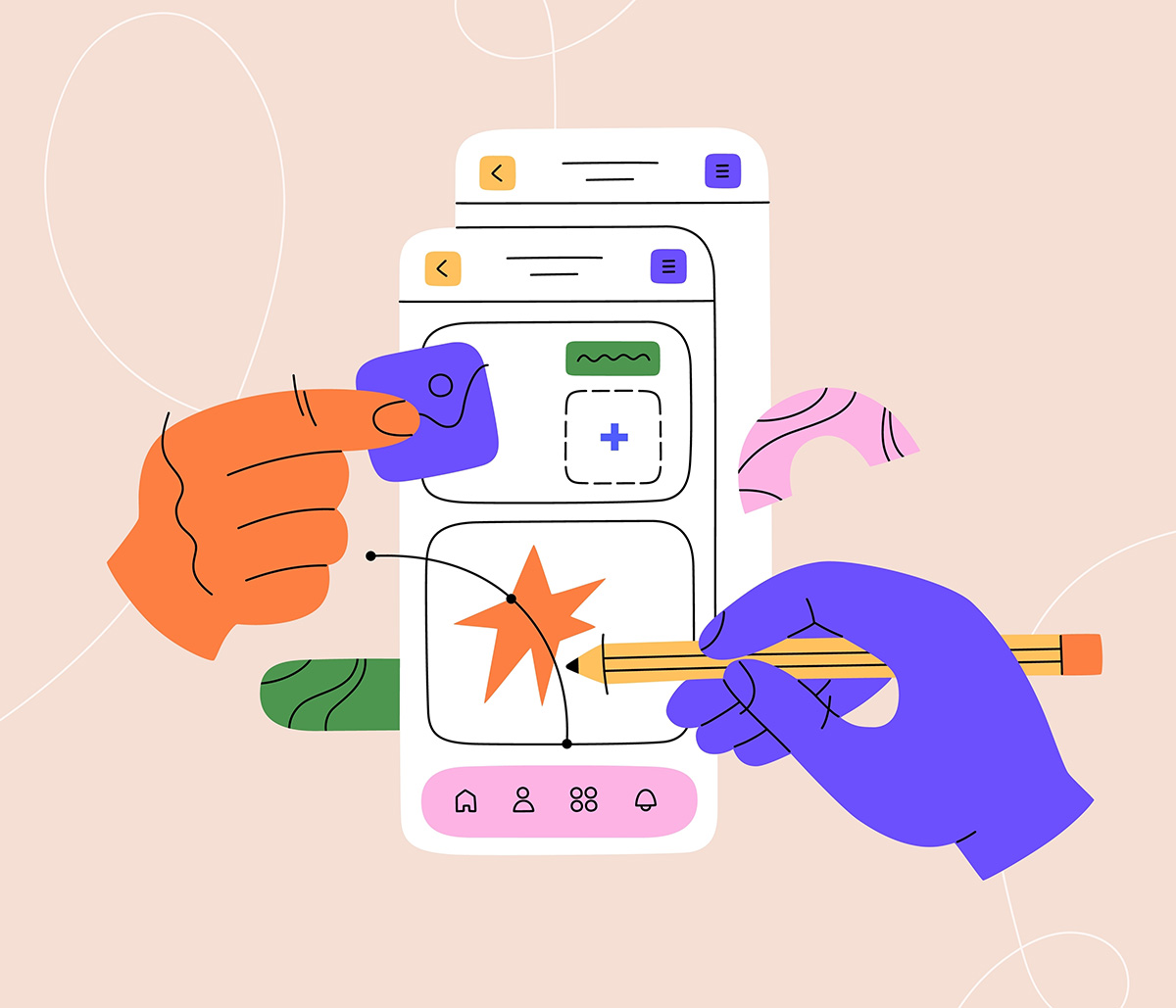Having a website with inaccessible features and content can often prevent people with disabilities from gaining equal access to your information. Website accessibility is an inclusive practice that helps ensure all your visitors—including those with disabilities—can use your website seamlessly and without difficulty, and have a positive experience.
Making accessibility part of your website design can help your business reach a larger audience, and it shows to the world that your brand is mindful of those who require special considerations when browsing the web.
Here’s more about the benefits of website accessibility, and how to contact our team at Katava Marketing when you’re ready to optimize your website.
What Is Website Accessibility?
Website accessibility is the act of developing websites that are user-friendly for all visitors, including those with a disability or impairment. It involves making sure your website is designed to accommodate all users, and that it provides a similar experience to everyone regardless of whether or not they have a disability.
An estimated one in four Americans has a disability. Therefore, website accessibility is essential to reaching 25% of the American population who may not otherwise visit your website if it weren’t user-friendly, or accessible. Blindness, poor vision, hearing loss, and learning deficits are some of the many disabilities that website accessibility addresses.
Examples of barriers to website accessibility include:
- Poor color contrast. Lack of color contrast, such as light-colored text against a light background, can make it difficult for people with low vision or color blindness to read your text.
- No captions on videos. People with hearing disabilities may have difficulty understanding your video content without the option to read captions.
- Mouse-only navigation. Some people with disabilities rely solely on keyboard navigation because they are unable to physically use a mouse or trackpad.
- No “alt-text” on images. Alt-text helps convey the meaning and purposes of images for those who are blind.
- Small buttons. Buttons and navigation links that are too small can be difficult to tap and interact with on smartphones and tablets for those with vision impairment, tremors, and arthritis.
Is Website Accessibility Required?
Not all businesses or websites are required by law to practice website accessibility. However, in numerous cases, lack of website accessibility has led to lawsuits for businesses that aren’t required to practice it by law.
The Americans with Disabilities Act (ADA) requires web content to be accessible on all state and local government websites, and on websites run by businesses that are open to the public.
Here are some examples of government-run services and activities that can be performed online, and to which website accessibility should apply:
- Paying for traffic tickets and fees
- Filing a police report
- Reviewing a driver’s license or identification card
- Filing tax documents
- Applying for an absentee ballot
- Registering to vote
- Registering for school
- Applying for state benefits
- Reserving books and materials at the public library
With regard to businesses, Title III under the ADA prohibits discrimination against people with disabilities by businesses that are open to the public and, by law, must provide appropriate communication aids and services, including website accessibility.
Examples of businesses that must meet website accessibility requirements include:
- Retail stores
- Banks and credit unions
- Hospitals and healthcare facilities
- Restaurants
- Hotels, motels, and inns
- Movie theaters and sports arenas
If you run a business that is open to the public, consider working with an experienced website development team that can ensure your site is accessible before its launch date.
Benefits of Website Accessibility
Practicing website accessibility comes with a long list of benefits for your business, even if you are not required by law under the ADA to do so. The top benefits of website accessibility are reaching a broader audience and increasing your web traffic, but here are other benefits to consider.
Boost SEO
As a bonus, Google also considers many of the features that go into making your website accessible when it comes to search rankings, or SERP. Alt-text, good color schemes, and easy-to-read text are some of the many features included in the web content accessibility guidelines (WCAG) that can help your site rank higher in search engines.
Strengthen Your Brand Reputation
Website accessibility can improve and strengthen your brand’s reputation how. It shows that your business is inclusive and provides and supports equal opportunity for all. People with disabilities who have great, positive experiences on your website may write positive reviews about your business and encourage others to visit your site as well.
Increase Conversion
An accessible website can enhance the user experience for everyone—not just for those with disabilities. For instance, providing the option to use both a mouse and keyboard for navigation will appeal to users who prefer one method over the other. An optimal user experience creates a better and more enjoyable journey that can boost your conversions and increase your revenue.
Avoid Lawsuits
In 2023 alone, a total of 4,605 ADA website accessibility lawsuits were filed, 3,086 of which were federal suits and 1,519 of which were state suits. Some of those lawsuits were filed against businesses that were already practicing website accessibility. However, the features were poorly designed, and usability was limited among people with disabilities. When setting up your website for accessibility, hire a dedicated website design team to reduce your risk of potential lawsuits.
Improve Code Quality
An unexpected benefit of website accessibility is having a website written with cleaner, higher-quality code. Many of the factors that go into making a website accessible—such as speeding up page loading time, creating a user-friendly interface, and eliminating bugs—require clean coding. Your website design team will appreciate it, as it makes your site far easier to work with. Having high-quality code on your backend will make it easier to implement new changes and content and keep up with the competition.
If your business is required by the ADA to practice website accessibility, reach out to a digital marketing agency that offers professional website development services. A website design team can help ensure your site is correctly set up and optimized for website accessibility.
At Katava Marketing, your vision is our mission! Our full-service marketing agency offers website design and development, and everything else your business needs to increase its revenue. We can work with you to ensure your website is accessible to all. Contact us at 973-998-8008 to get started today!





